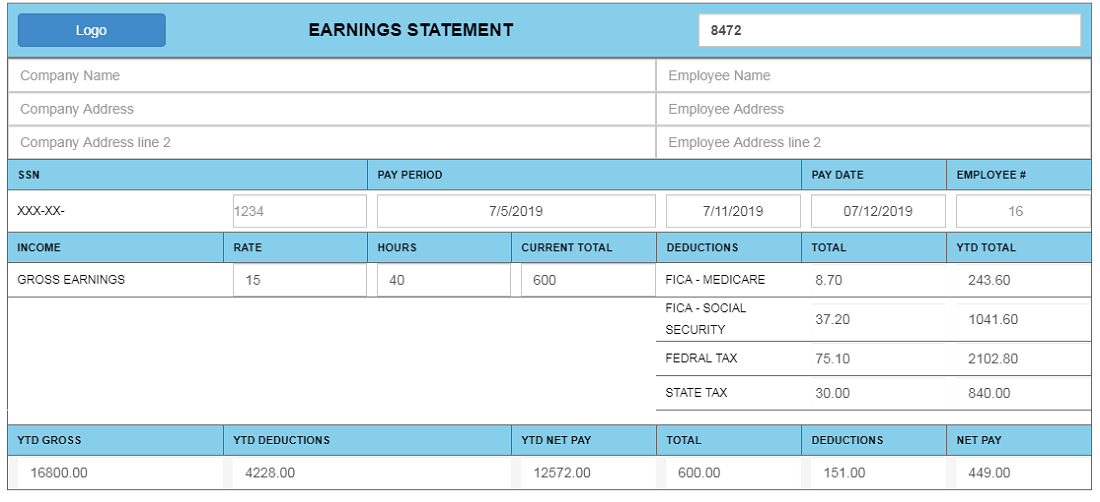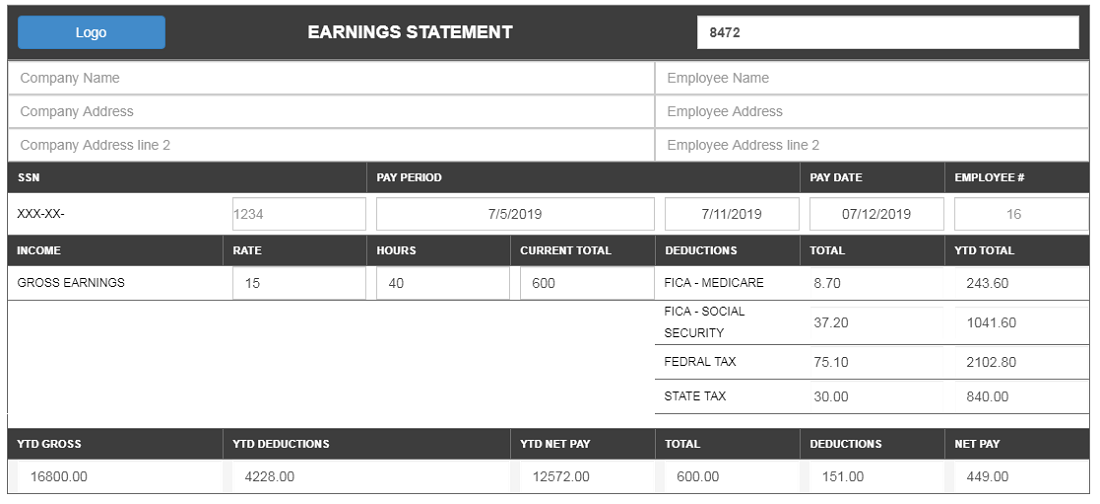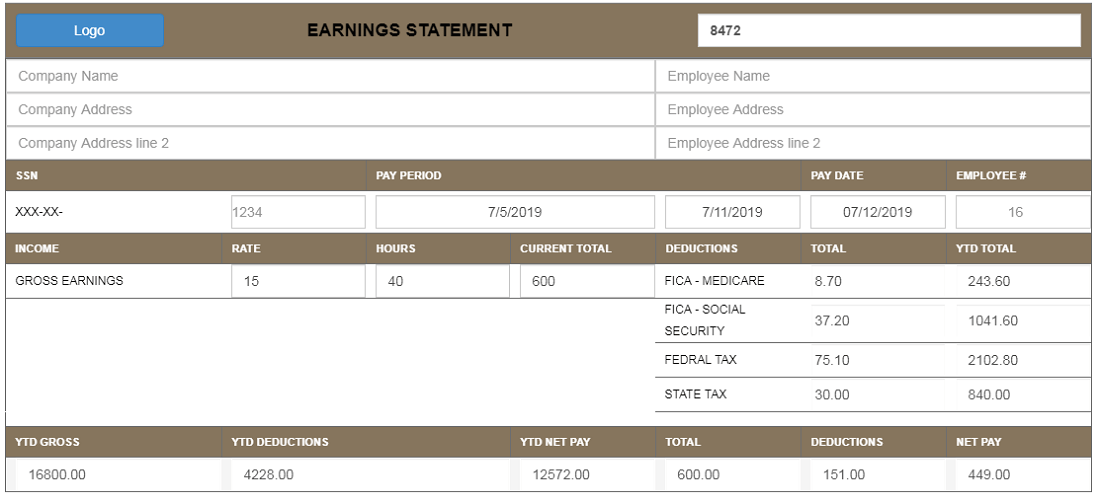Who is qualified to write a recommendation letter?
This should be written by a former professor or superior. This is because, in order to be believable, the recommendation must come from someone who has clearly observed how the individual works or performs and is thus qualified to judge the same.
A word of caution: if you are asked for a recommendation letter, you should check to see if you are permitted to provide one. Some companies, particularly the larger ones, have a policy of not providing these letters. Some companies only provide them through the human resources department. If you are unsure, consult with your human resources department.
Sample Templates

SAMPLE

SAMPLE

SAMPLE

SAMPLE

SAMPLE

SAMPLE

SAMPLE
This is a sample paystub.
The watermark will be removed once you’ve made the payment.
Are reference letters essential to being accepted or hired?
This will be determined by where you apply. As previously stated, it does not hurt to include a recommendation letter with your application. However, you will almost never find a job that requires one (unless in academia). Recommendation letters may be requested by colleges, particularly for future studies. Former instructors or mentors will be the ones to compose them in these circumstances.
What are the primary components of a recommendation letter?
Recommendation letters typically include the following:
- The recommended person's position and length of service
- A description of his job
- The author's stance and how it relates to the person being recommended
- The qualities and/or characteristics of the individual being recommended that make him or her a suitable candidate
- Contact information for the author (in case the receiver has any questions)
What are the most common recommendation letter blunders to avoid?
For most people, writing a recommendation letter appears to be a rather innocuous task. After all, you're doing someone a favor by assisting them in obtaining their desired employment. Unfortunately, in some extremely specific cases, this may not be the case. The following is a short list of frequent pitfalls to avoid while drafting recommendation letters:
- When you are not permitted to write one. As previously stated, certain companies have a policy regarding recommendation letters. Some do not permit it, while others designate only one person to write them. If you work for a large corporation, ensure you are not breaking any restrictions when making your recommendation.
- "Over-endorsing" a candidate The goal is fine, but being overly enthusiastic or overdoing your recommendations may expose you to liability. (Of course, this is quite unlikely, but it's better to be safe.) To be safe, make sure your claims are truthful and founded on facts. Make sure you don't seem like you're trying to persuade the recipient to hire the individual you're recommending. That is where the liability arises. That is not to suggest that you cannot say anything positive or noteworthy about your former employee or pupil. You can, but be sure you can connect it to facts or examples that led you to think or say so.
- You did not give one where you should have. Legally, you will not incur any obligation for failing to provide a recommendation. However, in terms of goodwill, failing to recommend someone who merits it closes the door on any kindness coming from that individual.
- Keeping the advice "too factual" Prospective employers look at recommendation letters for information that they will not discover on a CV. You could as well not have sent your recommendation letter if it only stated the position and its description. This is because it will not benefit the application and may perhaps be seen negatively. Make sure you include some useful evaluation of the individual.
Do I need to hire a lawyer, accountant, or notary?
Absolutely not. There is no one better equipped to write a recommendation letter than someone who has observed and evaluated the work of the individual being suggested. There are no technical or academic prerequisites for this. Simply defined, it is informing the recipient what you think of the individual you are suggesting. While the advice of a lawyer is always beneficial for limiting liability, you'll probably be fine on your own on this one.
What is the most efficient way to write a recommendation letter?
It should not be difficult to write recommendation letters. After all, you should only write them when you have something worthwhile to say. So, right away, you have an idea of what should be in there. It can be intimidating to write since other things that you want to write may jump into your thoughts while you're writing one item. The simplest solution is to establish a list of the traits of the person you wish to write about. If you know what position he or she is applying for, double-check which of the qualities you included are relevant to the position and cross out the ones that are not. Finally, try to connect the duties or actions that led you to believe that individual possessed that attribute. For example, if you wrote punctually, it's possible that you did so because he or she was never late. Once you've completed this, it'll just be a matter of filling in the blanks.
Why should you use our recommendation letter maker?
Using our Letter of Recommendation Generator will assist you in completing the task quickly and correctly. You will only need to fill in the gaps, and you will be finished. Our form will ask you questions to ensure that you have entered all the essential information.

Great Service
- James Abel

Wonderful
- Erica Scott

Thank You
- Jesse Thomas

Accurate
- Richard Smith













